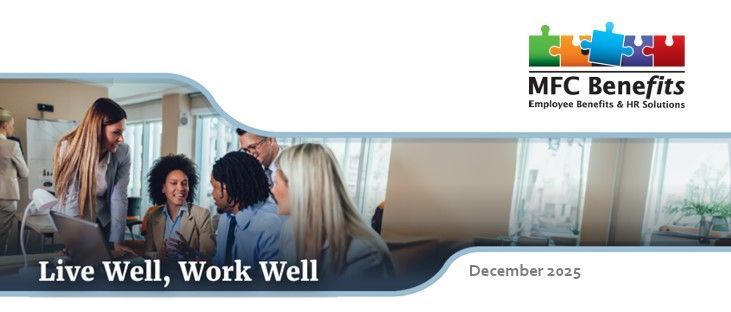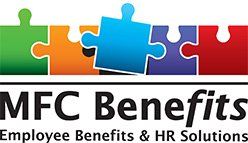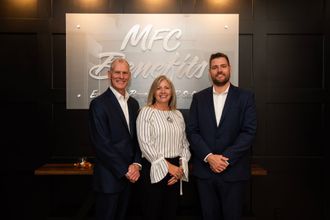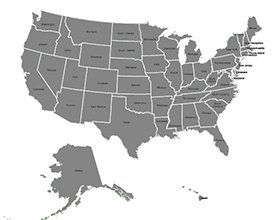PROVIDING TAILORED BENEFIT SOLUTIONS SINCE 1986
GROUP PRODUCTS
In our highly competitive economy, being able to offer your employees exceptional benefit packages is a key component in good management. Let MFC Benefits
create the perfect customized package for your company.
Learn More
BENEFIT SERVICES
From informational seminars to programs tailored to your company's needs, we offer a wide range of benefit services. Let us help you provide your staff with the benefits they want and need.
Learn More
ABOUT US
The secret to our success is our team of professional benefits advisors and service representatives. Call us today at 248-663-4765 and we'll design, implement, and service an exclusive benefit package for your business.
Learn More
MISSION STATEMENT
Designing, implementing, and servicing exclusive benefit packages for you and your employees.
LATEST MEDIA

Learn more about IRS providing guidance on Trump accounts for children and PCORI Fee amount adjusted for 2026. IRS PROVIDES GUIDANCE ON TRUMP ACCOUNTS FOR CHILDREN On Dec. 2, 2025, the IRS issued Notice 2025-68 announcing upcoming regulations and providing initial guidance regarding Trump Accounts. Created by the One Big Beautiful Bill Act, Trump Accounts are a new type of tax-favored savings account for children under the age of 18. Contributions to Trump Accounts may start July 4, 2026 , and can be made by anyone, including the account beneficiary, parents or guardians, grandparents, employers, philanthropic contributors or any other source. Children born between 2025 and 2028 may be eligible to receive a special $1,000 contribution from the federal government through a pilot program. Taxpayers will use IRS Form 4547 to establish Trump Accounts for eligible children. This same form is used to make an election to participate in the federal government’s $1,000 pilot program. A draft version of Form 4547 is available here. Notice 2025-68 clarifies that Trump Accounts are a type of traditional individual retirement account subject to special rules during the “growth period,” which is the period that ends before Jan. 1 of the calendar year in which the account beneficiary attains age 18. Employers can contribute to the Trump Account of an employee or an employee’s dependent pursuant to a Trump Account Contribution Program. These contributions are not includible in the employee’s income for federal tax purposes. Contributions are limited to $2,500 per employee per year , subject to cost-of-living adjustments after 2027. This program must be established pursuant to a written plan document and must meet certain tax rules that apply to dependent care assistance programs regarding discrimination, eligibility, notifications and benefits. Also, employers can allow employees to make pretax contributions to their dependents’ Trump Accounts through a Section 125 cafeteria plan. PCORI FEE AMOUNT ADJUSTED FOR 2026 The IRS recently issued Notice 2025-61 to increase the Patient-Centered Outcomes Research Institute (PCORI) fee amount for plan years ending on or after Oct. 1, 2025, and before Oct. 1, 2026. The updated PCORI fee amount is $3.84 multiplied by the average number of lives covered under the plan. For plan years that ended on or after Oct. 1, 2024, and before Oct. 1, 2025, the PCORI fee amount is $3.47 multiplied by the average number of lives covered under the plan. The PCORI fee is imposed on health insurance issuers and self-insured plan sponsors to fund comparative effectiveness research. It applies through the plan or policy year ending before Oct. 1, 2029. PCORI fees are reported and paid annually on IRS Form 720 (Quarterly Federal Excise Tax Return). These fees are due each year by July 31 of the year following the last day of the plan year. For plan years ending in 2025, the PCORI fee is due by July 31, 2026. Employers with self-insured health plans should have reported and paid PCORI fees for 2024 by July 31, 2025. The PCORI fees are calculated based on the average number of covered lives under the plan or policy. This generally includes employees and their enrolled spouses and dependents unless the plan is a health reimbursement arrangement (HRA) or health flexible spending account (FSA). Final rules outline a number of alternatives for issuers and plan sponsors to determine the average number of covered lives. More information on PCORI fees is available from the IRS, including an overview, common questions and answers and a chart summarizing the fees' application to common types of health coverage. Provided to you by MFC Benefits, LLC © 2026 Zywave, Inc. All rights reserved Download the PDF copy here. Link: http://chrome-extension://efaidnbmnnnibpcajpcglclefindmkaj/https://content.zywave.com/file/b6f7a224-b3a3-4409-a8f2-953f0994d66a/Benefits%20Buzz%20Newsletter%20January%202024.docx Link: http://chrome-extension://efaidnbmnnnibpcajpcglclefindmkaj/https://content.zywave.com/file/b6f7a224-b3a3-4409-a8f2-953f0994d66a/Benefits%20Buzz%20Newsletter%20January%202024.docx

Learn more about preventing burnout during the holiday season, mindful holiday eating, and learning your family health history. PREVENTING BURNOUT DURING THE HOLIDAY SEASON Everyday life can be hectic enough without the added pressure of the holidays, which can also be a source of major stress and burnout for many people. Burnout isn’t just about being tired; it’s emotional, mental and physical depletion caused by prolonged stress. However, with some planning and self-care, you can protect your mental and physical well-being while still enjoying the festivities. The American Psychological Association reports that the holiday season brings added stress for 2 out of every 5 people. Consider these tips to help prevent burnout: • Set realistic expectations. Social media and cultural norms often create pressure. Focus on meaningful experiences rather than flawless decorations, trendy outfits or extravagant gifts. Gratitude journaling can help shift your mindset toward what truly matters. • Start early. No matter your holiday plans, spreading out your tasks and starting early will help with stress levels. This way, you won’t be waiting until the last minute to complete tasks and rushing through responsibilities. • Take time to recharge. Self-care during the holidays isn’t indulgent; it’s essential. Regular breaks from daily stressors can prevent burnout by helping your body and mind relax and recharge. Rest restores your energy, boosts your mood and increases productivity. • Maintain boundaries. Boundaries protect your emotions and your physical space. They can be a healthy strategy as you navigate the holiday season and a full calendar. Only commit to the invitations or requests that truly matter to you and let go of the rest. • Make a list of all visible and invisible tasks. Often, the mental load of holiday planning falls on one person and can go unnoticed. For example, “buying a gift” includes making a budget, understanding interests or sizes, deciding on a gift, purchasing it and wrapping it. When invisible labor becomes visible, it’s easier to delegate tasks and ask for help. While these practical strategies can help address some holiday stressors, you should also seek further support from a doctor or mental health professional. MINDFUL HOLIDAY EATING The holiday season often means more parties and gatherings—and an abundance of festive food and drinks. However, practicing mindful holiday eating can help you savor the season without overdoing it. This healthy approach encourages focusing on preparing and consuming food in a distraction-free environment. Mindful eating offers physical and mental health advantages, such as better body cue recognition, overeating prevention, healthier food choices, stress reduction and weight loss. Consider the following mindful eating tips: • Honor your hunger and satiety cues. • Start with small portions. • Use all five senses when you eat. • Take small bites and chew slowly. • Limit distractions while eating. • Don’t skip meals. Mindful eating doesn’t mean avoiding your favorite holiday foods. It’s simply about bringing more awareness and enjoyment to your food. You can also try to prioritize the social aspect of gatherings and engage in meaningful conversations to reduce your focus on food. By practicing mindful holiday eating, you can enjoy the season and create lasting memories. Contact a dietitian if you need guidance on mindful eating. LEARNING YOUR FAMILY HEALTH HISTORY Most people have a family history of at least one chronic disease. Your family health history is one of the most powerful tools for understanding your risk for disease and conditions like heart disease, diabetes and certain cancers. Knowing this information can help you and your health care provider make informed decisions about screenings, lifestyle changes and preventive care. A 23andMe survey revealed that although 9 out of 10 Americans agree that knowing family health history is important for knowing their own health risks, fewer than half (38%) actually know it. The holiday season is a great time to gather or update family health history information so you can take charge of your health in the new year. Consider asking your family members these questions: • What is your family’s ancestry or ethnic background? • Do you have any chronic diseases, such as heart disease, diabetes or obesity? • Do you have any health conditions, such as high blood pressure, high cholesterol or asthma? • Have you been diagnosed with any other serious health issues, such as cancer, stroke or Alzheimer’s disease? • How old were you when each of these diseases or health conditions was diagnosed? Remember to ask about the cause and age of death for relatives who have died. It’s important to record your family health history and continually share updates with family members. The U.S. surgeon general’s web-based tool, My Family Health Portrait, can help you keep track of information. If you have health concerns, talk with your doctor. This article is intended for informational purposes only and is not intended to be exhaustive, nor should any discussion or opinions be construed as professional advice. Readers should contact a health professional for appropriate advice. © 2025 Zywave, Inc. All rights reserved. Download the PDF copy here.
Happy Customer Reviews
Memberships










